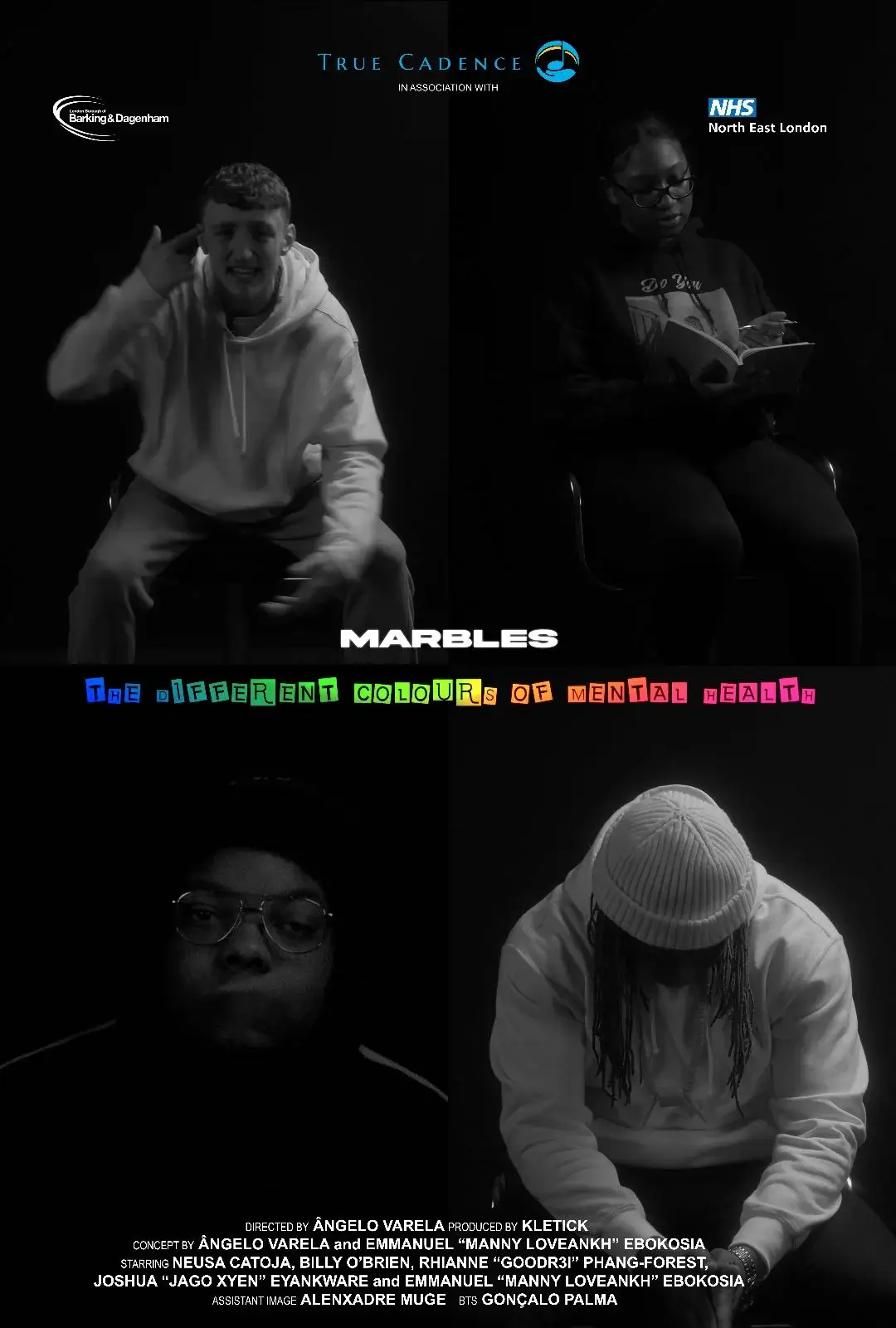Introduction:
In an era where mental health issues are increasingly prevalent, it is crucial to nurture open conversations and understanding, especially among young people. True Cadence, in collaboration with Barking and Dagenham Council and NHS England, has crafted a thought-provoking short film titled “Marbles: The Different Colours of Mental Health“. This captivating video harnesses the power of spoken word to shed light on various mental health-related matters, aiming to normalise discussions around them and foster a more empathetic and inclusive society.

Capturing the Essence:
“Marbles” delves into the intricacies of mental health through an artistic lens, captivating viewers with its evocative visuals and poetic storytelling. The film’s title, “The Different Colours of Mental Health,” suggests that mental health struggles encompass a diverse range of experiences, much like the multitude of colours. Through this analogy, the film conveys the message that mental health journeys are unique to each individual but deserve understanding and support.
Breaking the Silence:
One of the primary objectives of “Marbles” is to destigmatise mental health by encouraging open conversations. The film emphasises the importance of shattering the silence surrounding these issues and cultivating an environment where individuals feel secure and at ease discussing their mental well-being. By presenting relatable scenarios and engaging narratives, “Marbles” showcases that mental health challenges can impact anyone, irrespective of age, background, or social status.
The Power of Spoken Word:
True Cadence’s decision to employ spoken word as the medium to convey the film’s message is truly inspired. The combination of spoken word and visually striking imagery heightens the emotional impact of the storytelling, enabling viewers to deeply empathise with the characters and their struggles. The poetic rhythm of the spoken word format draws us in, encouraging active reflection and introspection.
Normalising Mental Health:
In an era where young people encounter unique challenges in navigating their mental health, “Marbles” focuses on normalising conversations surrounding mental well-being. By addressing topics such as anxiety, depression, self-doubt, and loneliness, the film offers a relatable and authentic representation of the struggles that many young individuals face. This normalisation is crucial in encouraging individuals to seek help, support one another, and realise they are not alone in their experiences.
Inspiring Change:
“Marbles” is not merely a short film but a catalyst for change. By stimulating conversations and challenging societal norms surrounding mental health, the video has the potential to inspire communities, educational institutions, and healthcare providers to reassess their approach to mental health support. By shining a light on these issues, the film empowers young people to seek assistance, raises awareness among the wider community, and ultimately promotes a culture of empathy and compassion.
Conclusion:
“Marbles: The Different Colours of Mental Health” is a short film that surpasses its duration, leaving a lasting impact on its viewers. By utilising the power of spoken word and captivating visuals, the film prompts open discussions about mental health issues among young people. Through its relatable narratives and powerful messaging, “Marbles” creates a ripple effect, challenging societal perceptions and promoting a more inclusive and understanding society. Let us embrace this film’s message and strive to transform the conversation around mental health, nurturing empathy and support for all.
WATCH THE SHORT FILM


